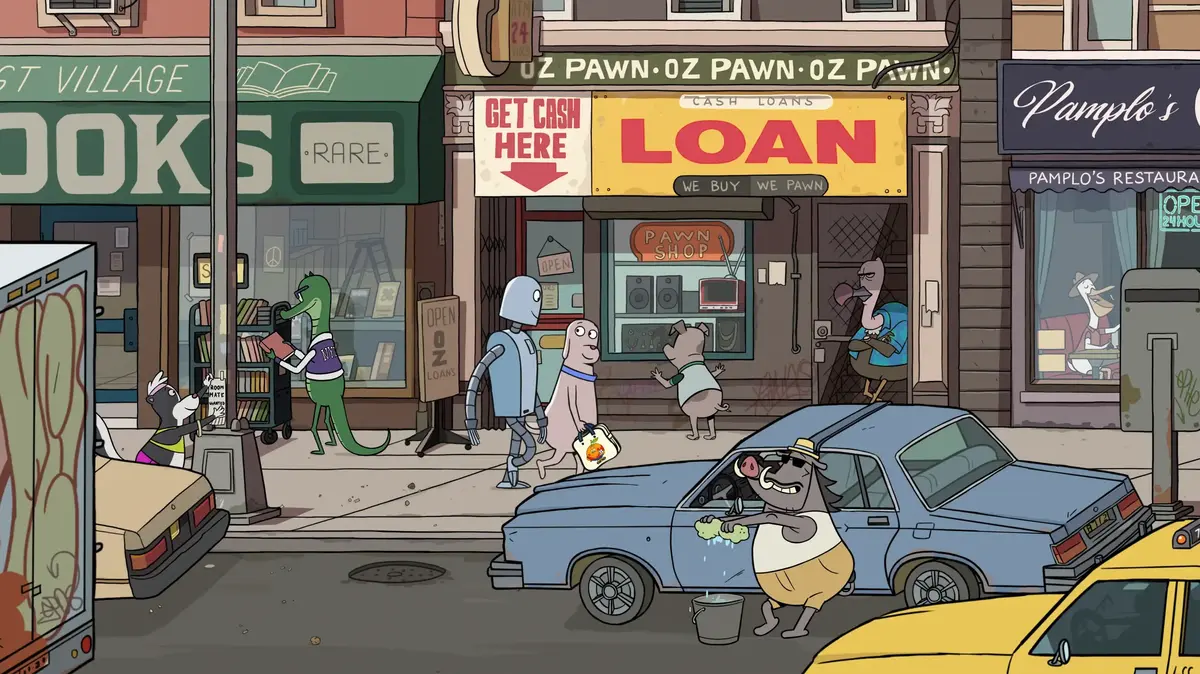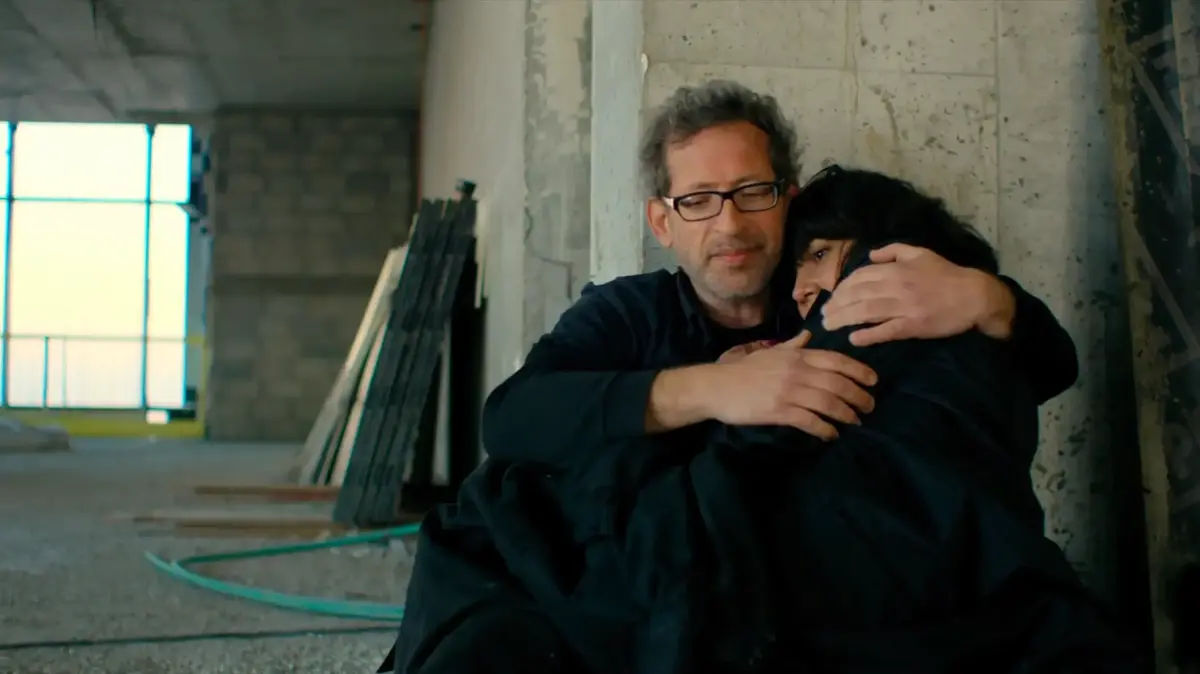The best movie in history does not exist.
It is worth remembering this obviousness before accepting the challenge of a survey considered canonical, organized every decade since 1952 by the magazine of the British Film Institute
Sight & Sound
and voted for by critics, programmers, historians and filmmakers from all over the world.
The new ranking was announced earlier this month with a bomb result: number one is no longer, as in previous decades, neither
The Bicycle Thief,
nor
Citizen Kane
nor
Vertigo,
but
Jeanne Dielman, 23 quai du Commerce 1080 Bruxelles
, a 1975 Belgian film written and directed by Chantal Akerman when she was barely 25 years old and starring Delphine Seyrig, who plays a lonely housewife who is practically silent during the three hours and 20 minutes of footage.
More information
The best film in history is neither 'The Godfather' nor 'Vertigo': experts choose a film by Belgian Chantal Akerman
Jeanne Dielman
is a fierce feminist plea and a radical film in its way.
Akerman, who committed suicide at the age of 65, in 2015, wanted to represent female oppression, and her rage, through three days of routines and detailed housework in real time, with the camera fixed on a woman and mother who, in addition cooking, tidying up and washing up, she prostitutes herself.
When Akerman was asked what made his cinema different from what men make, he replied: “The difference is that a man would never have made this film.
From birth, they learn different values, and a woman washing dishes is not art."
A tireless explorer of experimental cinema, Akerman sought to break the hierarchy of images and, by extension, the one that society reserves for women.
The
Sight & Sound
survey has opened up a thorny debate with the contemporary culture wars at its epicenter.
For this new survey, the magazine has made a much broader call, 1,639 participants —among which this firm is included—, compared to the 846 of the 2012 call, which in turn was much broader than that of the decade previous.
This opening responds, according to its detractors, to a calculated strategy that, beyond making room for new sensibilities and perspectives of gender and race, causes a biased and opportunistic break with the cinematographic canon.
An image of 'Parasites', by Bong Joon-ho, which has entered the list of 'Sight & Sound'.
The only two women who appeared before, Akerman and Claire Denis (whose 1998 film
Good job,
climbed from position 78 to seventh), are joined by Céline Sciamma, Agnès Varda, Jane Campion, Věra Chytilová, Julie Dash, Maya Deren and Barbara Loden.
Pioneers like Dorothy Arzner or Leni Riefenstahl do not appear.
Along with this squad of female directors, there are also more black and Asian filmmakers and, more shockingly, a series of films released recently, such as
Moonlight,
by Barry Jenkins;
Let Me Out
,
by Jordan Peele;
Parasites
,
by Bong Joon-ho, or
Portrait of a woman on fire,
by Sciamma.
kill the father
"There is a clear component of killing the father, or the parents," says Esteve Riambau, historian, critic and director of the Filmoteca de Catalunya.
"Unlike the sixties and seventies, in which the father was also killed, the current massacre has been more genocidal than ever, an indiscriminate and unfair extermination of the classics."
For Riambau, the list responds to a "political, generic and generational" act that shows a clear problem of amnesia: "Does anyone really understand that there is
Parasites
and there's not even a [Ernst] Lubitsch or [Howard] Hawks movie?
In January, when it is known what each one has voted, it will be possible to better analyze the imposture”.
“Shaking the canon is essential”, he adds, “but what the survey shows, whose representativeness is undeniable and for that reason it is worth reflecting on, is the abandonment of the popular dimension of cinema and the entrenchment in the redoubt of militancy and the ghetto”.
The list, which presents a clear American and French-speaking predominance, is, in his opinion, "a clear reflection of the cultural studies that began in American universities in the eighties."
To understand each other, what Harold Bloom, gatekeeper of the Western literary canon, dismissively branded as “Eskimo lesbian studies”.
American filmmaker and writer Paul Schrader (represented on the list by the
Taxi Driver
script ) was among the first to criticize the result;
for him, a readjustment distorted by political correctness and the “woke” agenda, something that in his opinion does Jeanne Dielman
a disservice
, a film that he admires and considers a fundamental reference.
In a tweet, veteran American film and literature critic Janet Maslin applauded Schrader and complained about a poll that reflects all the vices of "film students and Criterion
addicts ...
My God, the world is so much more ."
big,” Maslin wrote.
By contrast, Richard Brody, titular critic for
The New Yorker,
applauded in an article a result that, "despite unfortunate absences" (Cassavetes, for example), demonstrates "a more lucid vision of the history of cinema."
'An Andalusian dog', by Luis Buñuel, who has disappeared from the canon.
"It doesn't seem to me that something too serious has happened," says Josetxo Cerdán, director of the Spanish Film Library.
“The silent films that have disappeared are
An Andalusian Dog
, Intolerance
and
Greed
.
And of the three, the absence of Griffith [
Intolerance
] seems sung in these times”.
As with Leni Riefenstahl — whose enormous influence on the language of images is overshadowed by her Nazi affiliation — "Griffith's racism dooms him in the face of the canon."
For Cerdán, yes, including any recent film is highly questionable.
“Cinema needs time and rest to know what lasts and what is lost.
Although what seems to me most indicative of how a way of understanding cinema is being left behind is that Scorsese is no longer represented by
Raging Bull,
which falls, and among
Goodfellas,
which is a film by another Scorsese, from a much more postmodern tradition”.
For Manuel Asín, programmer and current director of the Punto de Vista festival, the diversity of the list is a sign that knowledge of cinema is expanding and "contemporary cinema includes in its complexity more and more cinema from the past."
The unprejudiced and non-hierarchical access to the history of cinema that the Internet revolution allows favors that many rarities located on the margins of the system penetrate deeper than the most canonical names.
“It will be interesting to see the set of votes with the films that, due to having fewer votes, have not entered the top 100.
Seeing specific elections will help to better understand some general trends, as well as the scope of experimental cinema in the complete survey”, adds Asín.
The Mexican critic Fernanda Solórzano admits mixed feelings towards a list that lends itself "to unnecessary controversy".
“I understand that the lists work at a playful level and as provocative exercises, but I don't know if at this point it is worth continuing to revolve around the idea of a canon, even if it is to shake it up.
I think the laudable effort to include more women voters certainly influenced the outcome.
As a critic, it goes without saying that I'm glad to see many more female directors included although, as a voter, it puts me between a rock and a hard place.
I did not include any of them, which does not mean that I do not believe that it is necessary to make the work of many of them visible.
Had I known the purpose was to unearth underappreciated (and female-directed) masterpieces, I would have included
La ciénaga,
by Lucrecia Martel.
'The Spirit of the Beehive', by Víctor Erice, the only Ibero-American film that appears in the classification.
Regarding the almost non-existent representation of Ibero-American cinema (only the Spanish
The Spirit of the Beehive
,
by Víctor Erice, resists in position 84), Solórzano adds: “It reveals that, in the words of the magazine, 'tireless effort' to double the voters to achieve more diversity did not really have a representational purpose, or it was a flawed job.
How is it possible that not even Buñuel appears?
The absence of Latin American cinema has surprised me more than the unexpected coronation of
Jeanne Dielman
”.
For Manuel Asín, this gap "discredits the overall results quite a bit."
“The list appears to be subject to US and French geopolitical interest.
Everything else falls: Italy, Latin America…”, adds Josetxo Cerdán.
A few weeks ago the Brainwashed
essay was released in theaters ,
in which director Nina Menkes dissects what is known as the
male gaze
, a term coined in 1975, the same year
Jeanne Dielman
was released , by Laura Mulvey, leading theorist of gender criticism.
In the extensive defense of the film that she has written for the special issue of
Sight & Sound,
Mulvey affirms that beyond the tradition of experimental and avant-garde cinema that Akerman's film represents, for her it is a clear reflection of the new power of the feminist movement and that deserves to be "celebrated".
For Mulvey, Akerman —a filmmaker of Jewish origin who has also entered number 52 on the list with
News from Home,
the film she shot in New York with letters from her mother just after
Jeanne Dielman—
, tops the list in its own right because it demonstrates the ultimate awareness of the "misogyny and oppression" inherent in women on screen.
A slogan that in
Brainwashed
sums up the African-American director Julie Dash, who has found a place in the new canon with
Daughters of Dust,
a cult film that premiered at the Sundance festival in 1991. Dash incites to break with the canon from its foundations with an old proclamation of feminist black women: "With the master's tools the master's house will never be destroyed."
Subscribe to continue reading
Read without limits
Keep reading
I'm already a subscriber

/cloudfront-eu-central-1.images.arcpublishing.com/prisa/ZMAYJKLHXZCN3NVPRXM6PUJMWY.jpeg)

/cloudfront-eu-central-1.images.arcpublishing.com/prisa/JBCOJNK3ZNDNVO3Q3XI47MKMWE.jpg)




/cloudfront-eu-central-1.images.arcpublishing.com/prisa/FPM2IKJUNFGWPPZIRZ52BX74EU.jpg)
